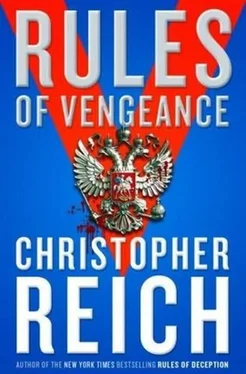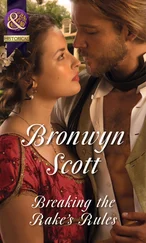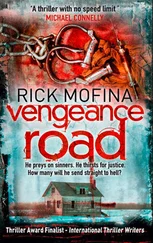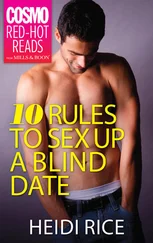“What kind of classified information?”
“Very classified,” said Graves.
Skepticism clouded Chagall’s features. “You mean they didn’t wish to kill Ivanov? Nonsense. Everyone wants Ivanov dead.”
“I’m only telling you what our evidence suggests.”
“So what is this classified information that was so precious to them?” asked Chagall.
“You mean you don’t know either?”
“Why would I drag my good friend Lord Robbie out so late at night if I already knew? We knew something was planned. We had word of the location, but we did not know what. Russell uses us and we use him. He often has better contacts in my country than I do. We were certain that he would know. All I can tell you, Captain, is that they are behind it all. The evil ones.”
Graves knew who they were without having to ask. The FSB.
“Listen, Captain,” Chagall continued. “I shall put you in touch with my source. He is one of them, too. But a good man. A face-to-face meeting. He will tell you what he knows. You will not be disappointed. In return, you must supply him with evidence of who killed Robert Russell.”
“Is he here in London?”
“He is.” Chagall threaded his way to the rear of the garage, where a car was being unloaded from a van. Graves took up position on one side of the ramp as a metallic blue 1964 Ford Shelby Cobra slid onto the floor. “My latest acquisition,” said Chagall. “The car that beat Enzo Ferrari at Le Mans in 1964. It is my first American purchase. What do you think?”
Graves wanted to say that he’d give his right arm to drive it, but instead he settled for “It’s very nice.”
“And so?” Chagall asked as he climbed into the Cobra’s driving seat. “May I tell him that you will give him the name?”
Graves smelled the leather, the new rubber. It was, he decided, the smell of power. “Deal.”
Chagall’s anxiety melted in an instant. Gone was his earnest, near-fawning demeanor. He was back to his arrogant self. “It is better that you hear it from the source. Otherwise, I do not think you will believe it. I will make the call immediately. You are free this evening?”
“I’ll clear my calendar.”
“Excellent.” Chagall gazed up. “I have one last question, Captain. You said that Russell’s killer entered his house through the basement. But the basement is also secure. I know. I nearly purchased a residence there. Tell me, please, how did they get in?”
Graves walked around the Shelby Cobra, tapping his fingers on the door. “They hid in the trunk of his car.”
Peter Chagall’s eyes opened wide.
“Frontière Française-2 km.”
Jonathan slowed the motorcycle as he approached the French border. The highway split in two, the westbound lanes climbing a slight grade cut into the hillside, the opposing lanes hugging the strip of flat terrain adjacent to the coast. The early evening traffic was heavy and after another kilometer he ground to a complete halt. Bracing the bike on his left leg, he gazed out at the sea. It had been his companion these seven hours, a beckoning blue expanse that led to his destination. Above his shoulder, the slope rose steeply. There were terraced houses and gardens, and clotheslines strung between olive trees. A breeze lifted off the sea, and he tasted salt and exhaust and the rich scent of warm pine.
The line of traffic shunted forward. He rounded a bend and spotted the broad shell-shaped building that housed the customs and immigration offices. Officers in pale blue tunics and legionnaire’s caps sauntered up and down the line of vehicles, conducting a cursory check of passports and identity cards, waving the cars past. Jonathan had crossed borders inside the EU hundreds of times. To his worried eye, everything appeared calm, unrushed. Business as usual. He watched as a plain white van was guided into an auxiliary lane for inspection. The border officer signaled for the van to halt. The next moment a team of plainclothes men and women materialized as if from nowhere and swarmed all over it.
So much for business as usual.
Hurriedly he checked for an exit from the highway. There were none. The last was a kilometer back. He glanced over his shoulder, and only then did he notice a police car hidden behind the exit sign. He gave the bike a little gas and advanced another 20 meters. There was no way out.
Less than a minute later, he slid beneath the shade of the portico. He had his identity card ready. The card belonged to Dr. Luca Lazio. The photograph had been taken seven years earlier and was scratched and faded. An officer approached, checking Jonathan up and down. He raised a finger and motioned for him to drive nearer. “You,” he said. “Stop.”
Jonathan extended the card and the officer grabbed it from his fingers.
“Where are you coming from?”
“Milano,” said Jonathan, because the motorcycle’s plates were from the industrial northern city.
“Purpose of your visit?”
Jonathan had no bags with him, no clothing other than what he wore. “Visiting a friend in Monaco,” he said.
The border guard studied Jonathan’s face, then took another look at the card. “Lazio, eh?”
“Yes.”
“A doctor?”
Again Jonathan said “Yes.”
The guard shook his head and gave him back the identity card. “Figures. Only a doctor would be crazy enough to drive on the highway without a helmet. Not even boots.” He waved him on. “Next time be more careful.”
Jonathan gave him a thumbs-up and accelerated into France.
“Next!” shouted the border guard.
Another night. Another inventory .
Emma laid her work kit on the bed:
Ka-Bar knife
Duct tape
Pepper spray
Taser
Flexicuffs (two pairs)
Gauze pads (one box hypoallergenic)
Sig Sauer 9mm with muzzle suppressor
Two clips ammunition
She stepped back to assess the tools she would need that night. She spotted what was missing at once. She rooted around in her bag until her fingers clasped the rectangular metallic object.
Lock picks
There. It was complete.
She sat down and handled each item, making sure all were in good working order.
She sharpened the knife.
She folded down the lead edge of the duct tape for easy tearing.
She peeled off the protective layer of plastic from the pepper spray and depressed the nozzle. A tiny cloud of vapor appeared. She sniffed it and her eyes watered. She put the canister down.
She set the Taser for 10,000 volts and checked that the batteries were charged.
The flexicuffs were fine as was. Ditto the gauze.
She screwed the muzzle suppressor onto the pistol, fed a clip into the butt, and chambered a round. She let her hand get used to the weight of the gun, taking aim at imaginary targets around the room. Then she ejected the cartridge, dropped the clip, and unscrewed the silencer.
Picks oiled and sharpened as necessary.
She sat up straight and looked at herself in the mirror. She did not blink or breathe for a minute. Another test passed.
The doors to the balcony stood open. A cool breeze freighted with salt and brine carried from the sea, ruffling her hair. She rose and stepped outside. The room on the third floor of the Hôtel Bel-Air in Bricquebec near the Normandy coast offered a panoramic view over pastures, hedgerows, and beyond them, stretching to the horizon, la Manche. The English Channel.
She returned inside and replaced all the items in her work kit, which she slid beneath the bed. From her handbag she retrieved a map of the département and studied the grid between Bricquebec and La Reine. Running a nail over the map, she located the Rue Saint-Martin. It was denoted as a country road running in a straight line 4 kilometers between Bricquebec and the neighboring hamlet of Bredonchel.
Читать дальше












